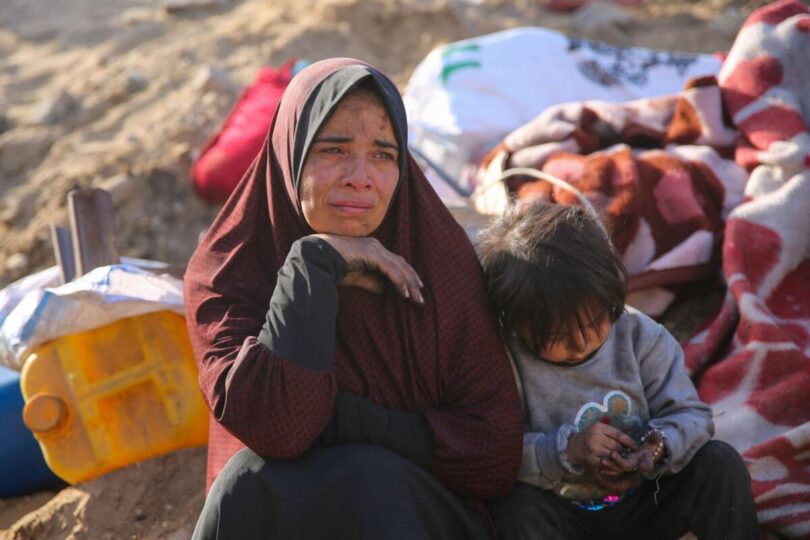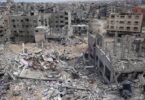Asha Iyer Kumar
I am no Kate Middleton. Neither have I been diagnosed with the big C. Yet I have been lately comparing me with her a lot, not on the same presumptuous level as you might suspect with eyes rolling, but as fellow human beings. And along with us, I have been thinking of an anonymous Gazan mother, who at this point might be looking up to the skies to see if parachutes are cascading down from a benevolent country’s Air Force plane.
A royal lady riddled with the scrutiny of the world; a beleaguered mother in a war-torn land; and a middle-class woman in a glitzy desert city – what can presumably be common between us, except that we are women? Pain.
When Kate released the video announcing to the world that she has been afflicted with the most dreaded disease in the world, and when all the scorn that had been heaped upon her in the days that preceded it metamorphosed to sympathy, support and remorse, I vicariously felt vindicated. When she appealed for privacy and space, I felt her and acknowledged that she was entitled to it as she was coming to terms with an unexpected, life-threatening clinical revelation.
Cancer by its very nature is cruel; it carries with it connotations of a terminal condition; it is a subtle reminder of death and inspires fear like no other disease can. It is a metaphor for mortality. And for this reason, a diagnosis and an announcement thereafter warrant genuine compassion.
Not just for Kate, but for millions like her. Perhaps, her affluence and status can help her navigate this period with more courage and confidence than most others. However, the fact that she belongs to a privileged class doesn’t make the disease any less dreadful to her.
Even as I acknowledge pain as a constant in human lives, not all are stricken with the big C. Some, like me, are torn to tatters by the big D. The lancing difference between C and D is no one asks the former, ‘Why? Why did you get cancer? What was lacking in your life?” But they ask me, “Why? Why did you get into depression? Why the panic disorder? What was lacking in your life?”
“Brain chemicals, genetics, and life situations, my friend,” is all I can say.
It takes cosmical courage for someone with the big D to go and announce to the world that they need space and time to recover; that they need privacy.
And when you are not privileged; when you have to put food on the table; when you have huge psychiatric bills to pay: When people say recovery is all about ‘will-power’; when the ignorant masses consider it either as ‘derangement’ and the educated class normalise it with casual refrains sans understanding; when people advise you to mask the pain, smile and not complain; when well-meaning friends goad you on with ‘you are strong’ when all defences are breaking, the agony then becomes manifold. It makes one wonder, ‘Is Kate’s cancer alone worthy of compassion? Is an ordinary woman’s mental illness a trifling, or worse, a dubious thing?’
If cancer is considered terminal, depression is terminal too. Not in the most obvious way, but life bleeds out, paper cut by paper cut. It is the most unobtrusive way of dying.
The only way I summon the will to live on days that seem splintered and impossible to put together is by looking at scenes from Gaza, where a wailing mother is desperate to find a few morsels to feed her children amidst what seems like a sea of rubble and hopelessness. She needn’t come out and make announcements about the tragedy that has struck her life. She doesn’t have the luxury of appealing for privacy or time; she doesn’t even have what it takes to survive to the next day. She is a picture of unfiltered dystopian malady. With every shred of peace and happiness stolen from her chest, she and her children have no veritable reason to live; yet they live on because sometimes life offers no choice but to carry on until the time to leave arrives — either in the form of bombs and bullets for them; or in the form of systemic organ failure for the terminally ill; or as a slow, silent exit for those whose brain plays truant now and then.
Resistance is the only option before us whether the world backs us or not; whether we receive flaks or favour; whether we belong to the elite or the plebeian; because at the end of the day, none of us want to go down without a fight. And sometimes, acceptance seems like a curious alternative, when all other cards have been played.
Death, disease and devastation are huge equalisers. Pain and suffering don’t feel different to a royal and a commoner. If compassion has to be shown in earnest, it has to go to every man, woman and child in distress.
Because misery cannot be compared, evaluated and rated. To each, his or her own. Kate is in pain, and so are many of us. To us all, may there be light at the end of the tunnel. Until then, let’s keep walking.







